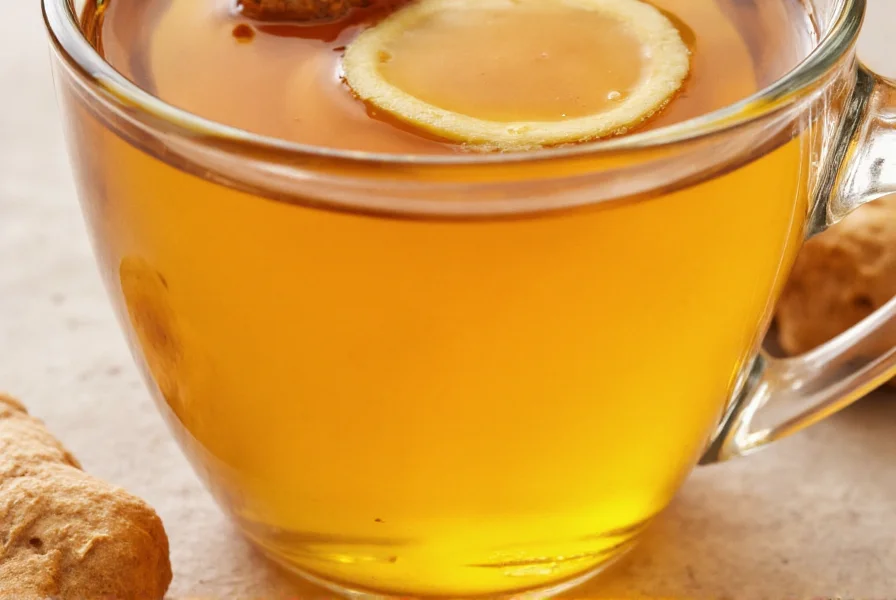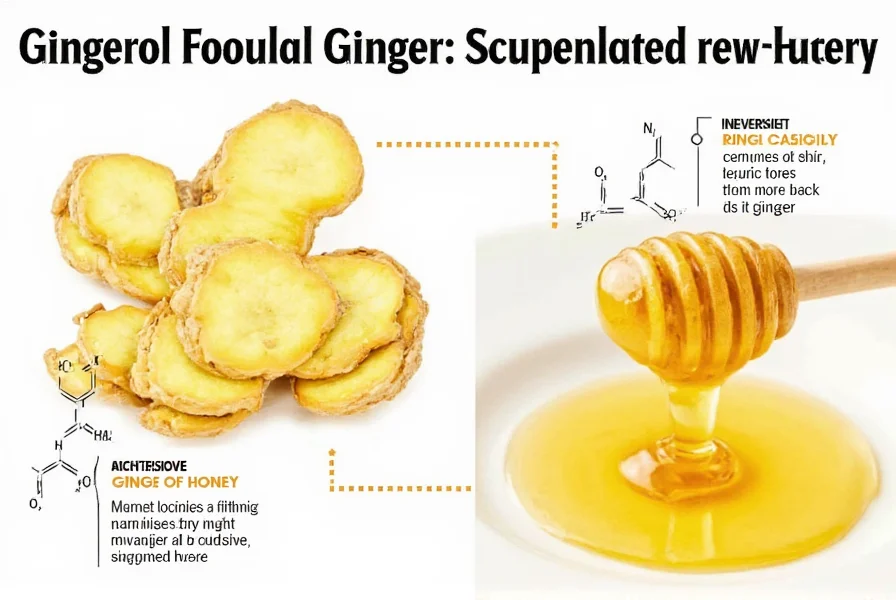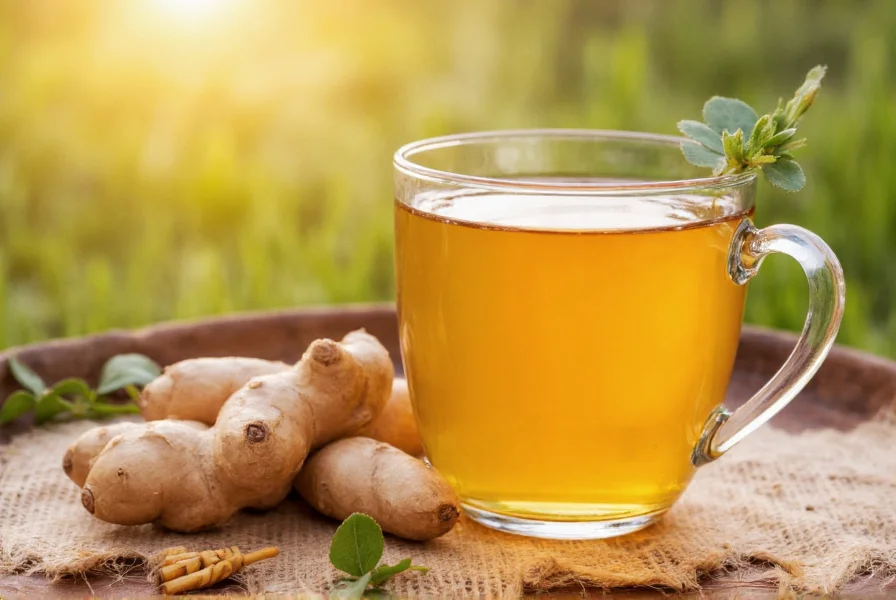For centuries, cultures worldwide have turned to ginger tea with honey as a trusted home remedy. This simple combination of two natural ingredients creates a powerful synergy that modern science continues to validate. Unlike many trendy wellness products, this traditional remedy has substantial research backing its effectiveness for specific health concerns.
The Science Behind Ginger and Honey
Ginger contains bioactive compounds, primarily gingerol, which gives it potent anti-inflammatory and antioxidant properties. Honey, particularly raw varieties, contains flavonoids and phenolic compounds that contribute to its therapeutic effects. When combined in tea form, these ingredients create a beverage with multiple health-promoting mechanisms.
Evidence-Based Health Benefits of Ginger Tea with Honey
Digestive Health Improvement
One of the most well-documented benefits of ginger tea with honey relates to digestive health. Clinical studies show ginger accelerates gastric emptying, which can alleviate symptoms of indigestion and bloating. The American College of Gastroenterology recognizes ginger as an effective natural remedy for nausea, including morning sickness during pregnancy and chemotherapy-induced nausea.
When honey is added to ginger tea, it creates a soothing effect on the digestive tract. The natural sugars in honey may help balance the strong flavor of ginger while contributing prebiotic effects that support gut microbiome health.
Immune System Support
Ginger tea with honey provides dual-action immune support. Ginger's antioxidant compounds help reduce oxidative stress, while honey's antimicrobial properties can help fight certain pathogens. Research published in the Journal of Food Science indicates that the combination may enhance the body's natural defense mechanisms during cold and flu season.
| Benefit | Scientific Evidence Level | Recommended Consumption |
|---|---|---|
| Digestive relief | Strong clinical evidence | 1-2 cups after meals |
| Sore throat relief | Moderate clinical evidence | 2-3 cups daily when symptoms appear |
| Nausea reduction | Strong clinical evidence | 1 cup as needed |
| Immune support | Preliminary research | 1 cup daily during cold season |
Sore Throat and Respiratory Relief
When seeking natural remedies for sore throat, ginger tea with honey stands out as particularly effective. The warm liquid soothes irritated tissues while ginger's anti-inflammatory properties reduce swelling. Honey coats the throat, providing immediate relief from coughing and irritation.
A comprehensive review in the Cochrane Database of Systematic Reviews concluded that honey provides superior relief for upper respiratory tract infections compared to placebo and even some over-the-counter medications. When combined with ginger's additional anti-inflammatory effects, this tea becomes a powerful natural remedy for respiratory discomfort.

Anti-Inflammatory and Antioxidant Effects
Chronic inflammation contributes to numerous health conditions. Ginger's gingerol compounds demonstrate significant anti-inflammatory activity, comparable to some non-steroidal anti-inflammatory drugs but without the side effects. Honey adds additional antioxidant capacity, helping to neutralize free radicals that contribute to cellular damage.
Research from the Journal of Medicinal Food indicates that regular consumption of ginger tea with honey may help reduce markers of inflammation in the body, potentially benefiting those with inflammatory conditions like arthritis when used as part of a comprehensive treatment plan.
How to Prepare Optimal Ginger Tea with Honey
For maximum health benefits of ginger tea with honey, preparation matters. Start with fresh ginger root rather than powdered ginger for higher concentrations of active compounds. Slice or grate approximately one inch of ginger and simmer in 2 cups of water for 15-20 minutes. Strain the tea, allow it to cool slightly (below 140°F/60°C), then add one to two teaspoons of raw honey.
Adding honey to excessively hot tea destroys its beneficial enzymes and antioxidants. The ideal temperature preserves honey's medicinal properties while still providing a comfortably warm beverage. For enhanced benefits, consider adding a squeeze of fresh lemon juice, which increases the bioavailability of ginger's compounds.
Scientific Evidence Overview
While traditional use of ginger tea with honey spans centuries, modern research continues to validate many of these applications. A 2022 meta-analysis in Phytotherapy Research confirmed ginger's effectiveness for nausea and digestive issues. Studies on honey, particularly manuka honey, demonstrate significant antimicrobial activity against common pathogens.
It's important to note that while research supports specific benefits, ginger tea with honey isn't a cure-all. The evidence is strongest for digestive issues and sore throat relief, with more preliminary research supporting other potential benefits. Always consult with healthcare providers about persistent symptoms rather than relying solely on home remedies.

When to Consult a Healthcare Provider
Ginger tea with honey serves as an excellent complementary remedy, but certain situations require professional medical attention. Consult a healthcare provider if you experience:
- Persistent nausea lasting more than 48 hours
- Difficulty swallowing that doesn't improve with home remedies
- High fever accompanying sore throat
- Signs of allergic reaction such as rash or breathing difficulties
Potential Side Effects and Precautions
While generally safe, ginger tea with honey may cause issues for some individuals. Those taking blood thinners should consult their doctor before consuming large amounts of ginger, as it may increase bleeding risk. People with gallstone disease should use ginger cautiously as it may increase bile production.
Honey should never be given to children under one year due to botulism risk. Diabetics should monitor their honey intake as it affects blood sugar levels. Some people may experience heartburn from ginger, particularly when consumed on an empty stomach.
Conclusion
Ginger tea with honey represents a time-tested natural remedy with growing scientific validation. Its benefits for digestion, immune support, and respiratory comfort make it a valuable addition to daily wellness routines. By understanding both the evidence-based benefits and limitations of this simple beverage, you can make informed decisions about incorporating it into your health regimen.
Frequently Asked Questions
How often should I drink ginger tea with honey for maximum benefits?
For general wellness, 1-2 cups daily provides optimal benefits without risk of side effects. When addressing specific concerns like nausea or sore throat, you can safely consume 2-3 cups daily until symptoms improve. Excessive consumption beyond 4 cups daily may cause digestive discomfort in sensitive individuals.
Can ginger tea with honey help with weight loss?
While ginger tea with honey isn't a weight loss solution, it may support healthy metabolism. Ginger has been shown to increase thermogenesis slightly, and replacing sugary beverages with this tea can reduce calorie intake. However, adding too much honey will counteract these benefits, so limit to one teaspoon per cup if weight management is your goal.
Is there a difference between using raw honey versus regular honey in ginger tea?
Yes, raw honey retains more beneficial enzymes, antioxidants, and antimicrobial properties that are destroyed during commercial processing. For maximum health benefits of ginger tea with honey, raw, unfiltered honey is preferable. Processed honey still provides sweetness and some benefits but lacks the full spectrum of therapeutic compounds found in raw varieties.
Can I drink ginger tea with honey while pregnant?
Ginger tea with honey is generally considered safe during pregnancy and is commonly recommended for morning sickness relief. Most studies suggest up to 1 gram of ginger daily is safe, equivalent to about 1-2 cups of strong ginger tea. However, pregnant women should consult their healthcare provider before making it a regular part of their routine, especially if they have a history of miscarriage or bleeding complications.
How long does it take to feel the benefits of ginger tea with honey for sore throat?
Most people experience immediate soothing relief from the warm liquid and honey's coating effect. Significant reduction in sore throat pain typically occurs within 30-60 minutes of consumption. For best results, drink ginger tea with honey 2-3 times daily when symptoms first appear. Complete relief usually occurs within 1-2 days when combined with adequate rest and hydration.











 浙公网安备
33010002000092号
浙公网安备
33010002000092号 浙B2-20120091-4
浙B2-20120091-4